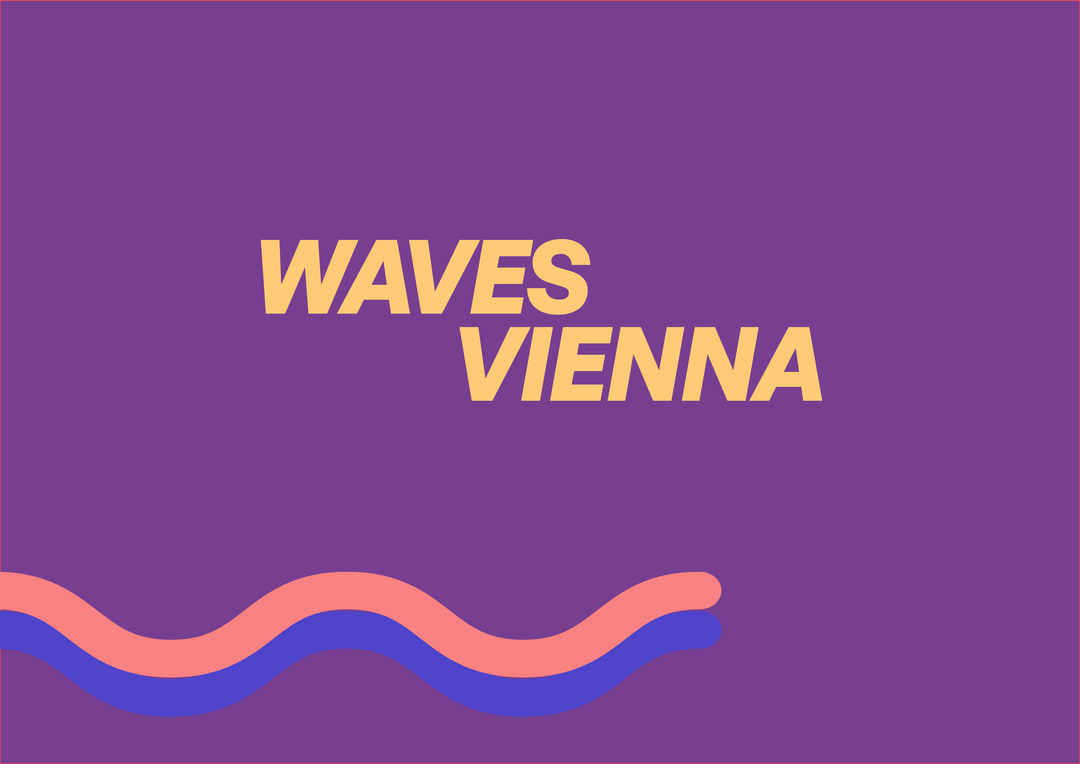
From September 5 – 7, 2024, the WAVES VIENNA CONFERENCE, organized by Waves Vienna, mica – music austria and Austrian Music Export, took place for the 14th time at a variety of locations around Vienna, featuring a wide range of lectures, discussions, and networking events with national and international musicians and music professionals.
The music industry in western Europe is far from reflecting the heterogeneous nature of the music scenes in many European cities. The panel at Café Museum on September 5 in Vienna: “Creating a heterogeneous music landscape”, organized in cooperation with the diversity initiative Question Me and Answer (QMA), took aim at this issue, featuring musicians and representatives of Vienna- and Berlin-based initiatives attempting to normalize heterogeneity in the music industry. A conversation about diversity in the most traditional of settings – a Vienna coffee house – with panelists Julia Chovookkaran (Chovo), Tmnit Ghide (Alvozay), Oyèmi Hessou (Decolonize Berlin) and Mwita Mataro (At Pavillon/QMA On Stage).
Smaranda Krings makes no secret of her double role at the event, as both the co-founder of Question Me and Answer and moderator of the panel. Krings, Osama Zater, and Justina Špeirokaitė, founders of Question Me and Answer, have set out to learn from other initiatives. To kick off the session, Krings asks each panelist why they started their respective initiatives.
Berlin is big, says Oyèmi Hessou, but somehow, she was always the only Black person in her circle. She founded the initiative Decolonize Berlin to find and connect like-minded people in the scene. She began with small concerts, but her work soon expanded to include a festival, art and photography exhibits, and poetry. Her approach is very open; she emphasizes the importance of including people and their wishes: “Diversity is what we live; it’s our life.” Simple visibility is not enough, and it’s not just about who’s on stage – it’s about who comes to the shows.
“There has to be a middle ground”
Tmnit Ghide found the indie label Alvozay together with the rapper EBOW. Artists generally work together in the same ecosystem; when one artist breaks through and becomes successful, the experience and knowledge they have amassed is often lost to the community. Many people in the music industry operate by trial and error. BIPOC artists – particularly newcomers – often have no recourse to the resources they need, though such resources are available in substantial amounts in Germany. In sum, Ghide says, there has to be a middle ground: that is what she sees as her mission.
Ghide emphasizes the importance of building sustainable connections, citing the German Initiative Musik, which now allows artists to apply directly for certain support programs – two years ago, that privilege was reserved for management. Musik fans, she notes, are fond of Black artists – but as soon as royalties enter the equation, Black artists are the first to be copied, but not paid. There are a lot of stories like that of Milli Vanilli’s biggest hit, “Girl, You Know It’s True” – in reality, an uncredited cover by a Baltimore rap crew.
“Why not connect music industry gatekeepers with the BIPOC community?”
Mwita Mataro, frontman for the band At Pavillon, is no newcomer to the Austrian music scene – but he, too, has repeatedly found himself the only BIPOC person in his milieu. With the initiative QMA On Stage – an offshoot of Question Me and Answer – he hopes to dismantle structural barriers in the music industry. He already knew everyone in the scene, he thought: why not connect music industry gatekeepers with the BIPOC community? It would be a win/win situation. He suggested the concept to QMA, and since 2020, QMA On Stage has been issuing open calls for artists.

A QMA residency in 2023 offered Julia Chovookkaran a “safe space” to make music: her experiences in journalism had taught her to expect resistance, but the residency allowed her to overcome her hesitation and try her hand at music. She began to develop herself as an R’n’B singer; she has since opened for Eli Preiss, and the online magazine Helden der Freizeit cited her as the biggest surprise of the Waves Festival.
At the end of the panel, Smaranda Krings started a countdown with the other participants, intended to run until music festivals have dissolved their “diversity panels” because they are no longer necessary. In 2024, however, we’re not there yet.
Ruth Ranacher, translated from the German original by Philip Yaeger.
